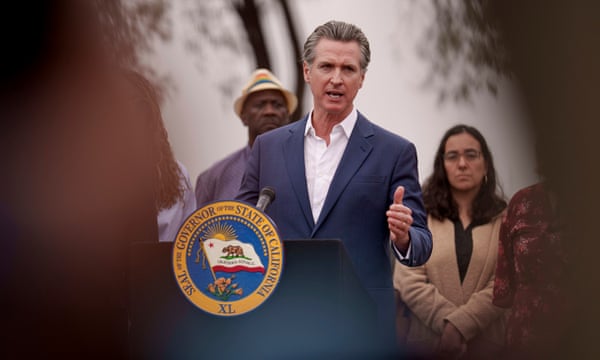"Informed AI News" is an publications aggregation platform, ensuring you only gain the most valuable information, to eliminate information asymmetry and break through the limits of information cocoons. Find out more >>
California Apologizes for Slavery and Takes Steps Towards Reparations
- summary
- score

California has formally apologized for its role in slavery and its lingering effects on Black Americans. Governor Gavin Newsom signed legislation acknowledging the state's historical complicity in the institution of slavery and its enduring racial disparities.
California's 1849 constitution declared slavery intolerable but lacked explicit laws to criminalize it or protect Black freedom, creating legal ambiguity that enslavers exploited. In 1852, a fugitive slave law was enacted, allowing escaped enslaved people to be arrested and returned to the South.
Despite resistance to cash payments, a UCLA study indicates most Californians support some form of compensation to address anti-Black racism. Newsom approved a $297.9 billion budget, including $12 million for reparations legislation.
The state has also taken steps to improve protections against hair discrimination and increase oversight over banned books in prisons. A new law mandates transparency in the prison book-banning process, requiring the office of the inspector general to review and post the list of banned books.
California leads other states in reparations efforts, with local initiatives like returning Bruce’s Beach to its original Black owners and ongoing demands for reparations in Palm Springs. However, the absence of widespread direct payments to African Americans has frustrated some advocates.
Key Terms:
- Eminent domain: The power of the government to seize private property for public use, often with compensation.
- Reparations: Compensation offered to address past injustices, particularly slavery and its effects.
| Scores | Value | Explanation |
|---|---|---|
| Objectivity | 6 | Comprehensive reporting with in-depth analysis. |
| Social Impact | 6 | Extensive social discussion, major impact on public opinion. |
| Credibility | 6 | Credible and verified by multiple sources. |
| Potential | 6 | High potential for significant social or policy changes. |
| Practicality | 5 | Extremely practical, widely applied in practice. |
| Entertainment Value | 2 | Slightly monotonous, few entertaining elements. |